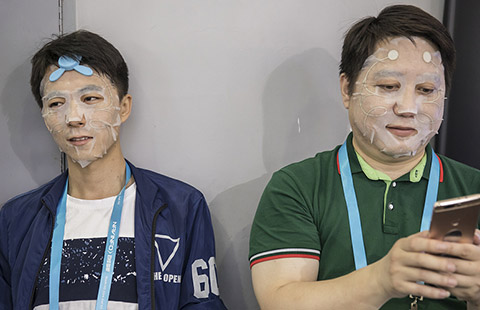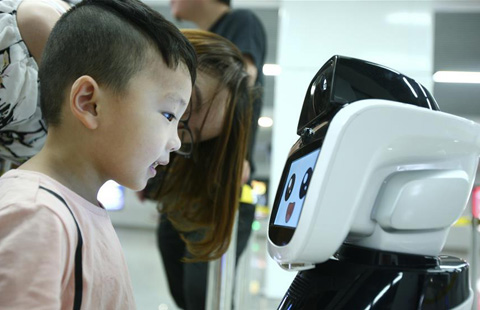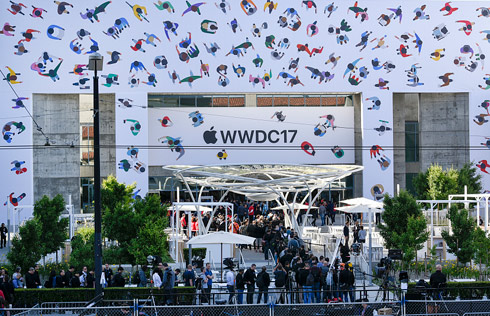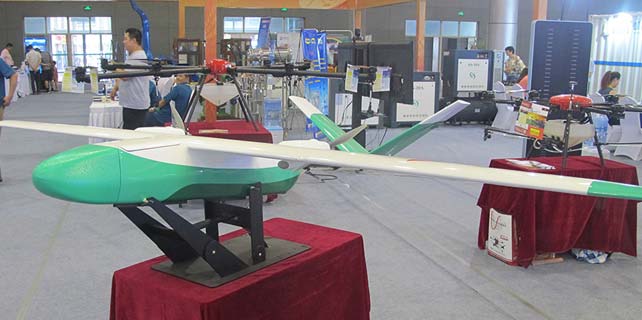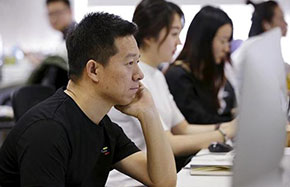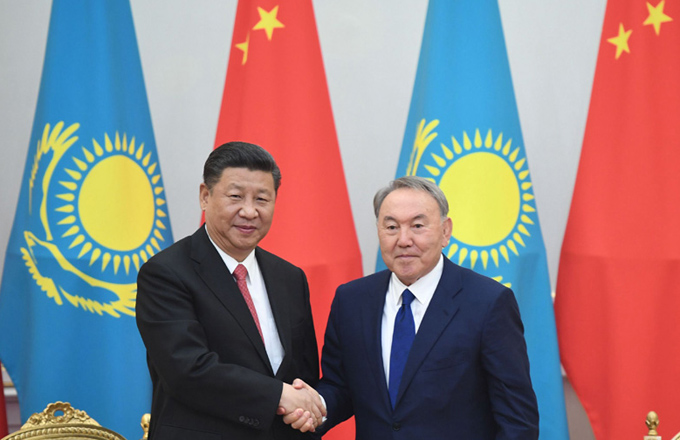China's May consumer inflation in line with forecasts
 |
|
An employee measures the weight of a pumpkin for a customer at a supermarket in Chongqing, Southwest China, June 9, 2017. [Photo/VCG] |
BEIJING - China's consumer price index (CPI), a main gauge of inflation, rose 1.5 percent year-on-year in May, the National Bureau of Statistics (NBS) said Friday.
The CPI expansion in May was in line with estimates. It quickened from April's 1.2 percent, March's 0.9 percent and February's 0.8 percent.
On a monthly basis, however, the CPI declined 0.1 percent, according to the NBS.
Of the 1.5-percent CPI growth in May, one percentage point was contributed by the carryover effect of price increases last year, NBS senior statistician Sheng Guoqing said.
The NBS attributed the pick-up in CPI partly to higher non-food prices, which grew 2.3 percent year-on-year in May.
However, food prices dropped 1.6 percent. Meat and vegetable prices fell 7.8 percent and 6.3 percent year-on-year respectively.
Food prices account for nearly one third of the basket of goods in China's CPI calculation. Data from the Ministry of Commerce showed earlier that prices of vegetables, eggs and pork had been declining for the first three weeks of May, affected by supply and demand imbalance.
From May 15 to May 21 in particular, the average prices of 30 different vegetables dropped 5.2 percent from the previous week, while egg and pork prices shed 2.3 percent and 1.2 percent, respectively.
Pork and egg prices had been dragged down as a result of ample supply and short demand. The high price of eggs and pork in previous years caused farmers to raise pigs and chickens, leading to oversupply.
Excluding volatile food and energy prices, the core CPI increased 2.1 percent year-on-year in May, which was the same as the previous month.
CPI increased 1.4 percent on average in the first five months of the year.
The figure was well below the official annual inflation control target of around 3 percent.
Lian Ping, chief economist at the Bank of Communications, said the CPI might continue to increase next month, as the carryover effect will reach its highest point in June.
In the second half of 2017, the CPI may decrease, according to Lian, forecasting that there will not be obvious inflation pressure throughout the year.
China International Capital Corporation said in a report that the CPI could remain muted in the near term, as agricultural supply-side reform might continue to depress food prices and the headline CPI until the fourth quarter, reducing the possibility of aggressive monetary tightening.
The producer price index (PPI), which measures costs of goods at the factory gate, rose 5.5 percent year-on-year in May, down from 6.4 percent in April and missing expectations of 5.7 percent, according to the NBS.
Month on month, the PPI edged down 0.3 percent, narrowing from the 0.4-percent decline in April.
China's PPI has stayed in positive territory since September, when it ended a four-year streak of declines, partly due to the government's successful campaign to cut industrial overcapacity, which benefited the wider economy.
The steady price data reinforced views about stabilization in the world's second-largest economy. China's GDP grew 6.9 percent in the first quarter of the year, up from 6.8 percent in the last quarter of 2016 and the official target of around 6.5 percent set for the year.
Chinese stocks edged up after the release of the data. The benchmark Shanghai Composite Index rose 0.26 percent to close at 3,158.40 points.
Deng Haiqing, chief economist with JZ Securities, said mild CPI growth would give policy makers more room to contain debt and financial risk.
China's monetary policy in 2017 is set to be "prudent and neutral" to keep appropriate liquidity levels and avoid large injections.
China has shifted away from a relatively loose monetary policy that helped growth over the past years, gradually guided interbank lending rates higher and tightened supervision on non-performing assets, shadow banking and local government financing.







